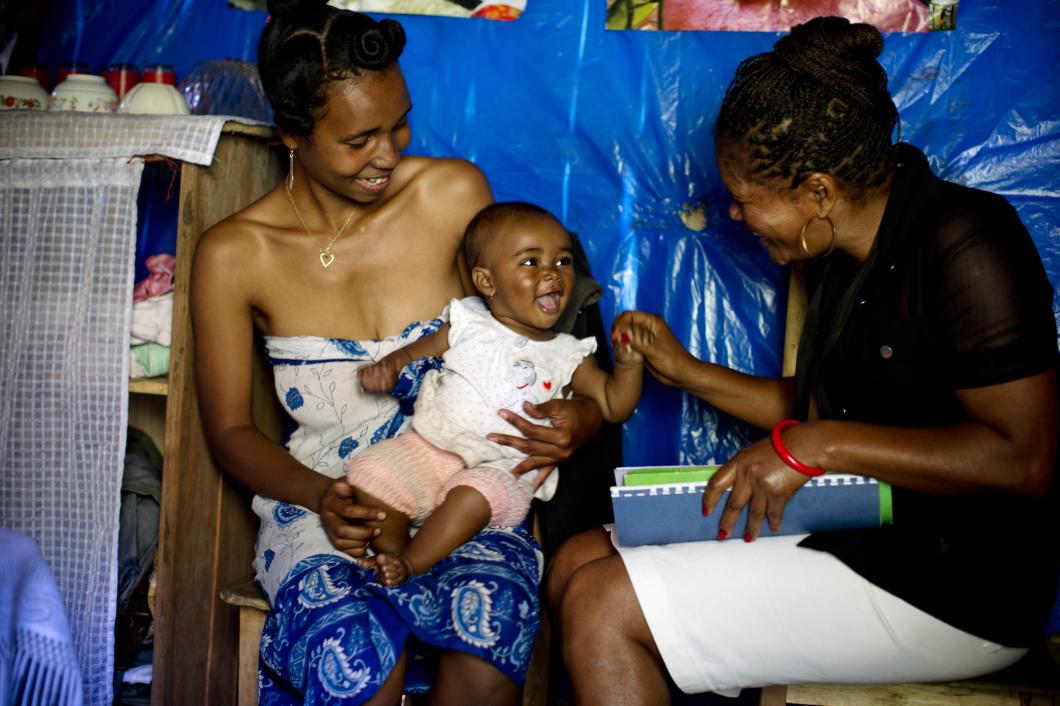
GREETINGS from the TASK FORCE SECRETARIAT
Dear Friends,
Thank you for your participation in the Task Force activities in 2021. The collaboration and successes we scored in the past year, against the odds of the COVID-19 pandemic, fill me with hope that further progress is possible as we implement the Roadmap to 2030.
In 2022, we shall exploit the strength of numbers and use our 2,200+ membership to focus on strengthening our collaboration with countries to implement child health programs. In our learning agenda, we will sharpen and share tools and adapt and iterate program approaches. Aligning with each country’s priorities, we will focus on improving quality of services and fostering data-driven decision-making to increase the equity of access to services and remove the multiple barriers that prevent many children from receiving the care that they need.
I am particularly excited about engaging more of our francophone colleagues, as we offer resources in French and simultaneous translation during webinars. I anticipate and look forward to the sharing of more lessons from these unheard voices.
Together, we will promote the wellbeing and improve health for all children.
Sincerely,
Dyness Kasungami, Director of the Child Health Task Force
RESPONDING TO MEMBERS' FEEDBACK
On January 13th, the Task Force virtually held its members' meeting where we discussed the results from the annual members' survey, the Task Force's strategic plan, and responded to member feedback/comments that are summarized below.
![]() The Task Force needs to engage more directly with francophone countries and share lessons learned from francophone African contexts.
The Task Force needs to engage more directly with francophone countries and share lessons learned from francophone African contexts.
This issue is a major priority for us in 2022. If you are a member from a francophone context who has lessons and/or challenges to share from a child health programming, research, and/or policy perspective, please reach out to childhealthtaskforce@jsi.com with your ideas. The Secretariat now has resources to translate some key communications and resources into French, including this newsletter, and host bilingual meetings.
![]() A major challenge now in LMICs is the shift from communicable to non-communicable diseases (NCDs), in particular those that originate in childhood. How can we use this platform to address lifestyle and/or environmental issues in child health?
A major challenge now in LMICs is the shift from communicable to non-communicable diseases (NCDs), in particular those that originate in childhood. How can we use this platform to address lifestyle and/or environmental issues in child health?
The Re-imagining the Package of Care for Children subgroup addresses many of these topics, and hosted a discussion series on NCDs and children. The sessions covered congenital heart disease, HIV, sickle cell, type 1 diabetes, and the PEN-Plus model for an integrated package of NCD services. The subgroup has also delved into climate change and child health, reviewing USAID’s new Climate Strategy to amplify the impacts on children. The Task Force will host an expert panel on this topic in the coming months.
![]() What is the Task Force’s plan for building capacity of its members, especially in light of the continuing COVID-19 pandemic?
What is the Task Force’s plan for building capacity of its members, especially in light of the continuing COVID-19 pandemic?
In accordance with the Task Force’s country engagement strategy, the subgroups will work closely with the child health technical working groups in countries to identify context-specific capacity needs. One example of a capacity building activity being planned is a training series hosted by the Implementation Science subgroup for program managers at the national and sub-national level on developing and writing original research in child health, including manuscript publication. If you have an idea for the series’ curriculum, please email childhealthtaskforce@jsi.com.
![]() How can local NGOs support implementation of the TF strategic plan with or without funds?
How can local NGOs support implementation of the TF strategic plan with or without funds?
The Secretariat does not have the resources to directly fund organizations to implement the strategic plan. However, ongoing activities may already be aligned with the strategic priorities and simply require coordination with other country and global partners. The Secretariat will develop a fact sheet for local NGOs/partners on funding opportunities/mechanisms in child health.
![]() Idea to increase the time for member engagement and learning in the member meetings.
Idea to increase the time for member engagement and learning in the member meetings.
The Steering Committee, subgroup co-chairs, and the Secretariat will work together to create a virtual annual members' conference with opportunities to post questions, answers, and reflections on an open discussion board.
TASK FORCE STEERING COMMITTEE MEETING
Highlights
The Steering Committee (SC) virtually convened its bi-annual meeting on December 15-16, 2021 to review progress to date, reflect on the results of the annual members' survey, strategize on furthering country engagement, discuss setting priorities for the TF's Strategic Plan, 2021-2025, and review the Child Survival Action Plan (CSAP).
SC members agreed on two new SC members (see below), priorities for the next two years of implementing the strategic plan, next steps for the CSAP, and the formation of a new TF country engagement working group.
The full meeting report will be shared and posted on the website when finalized.
Introducing New SC Members
We warmly welcome Peter Waiswa and Joseph Addo-Yobo to the Task Force SC and look forward to their valuable contributions.
Peter Waiswa
Peter is a medical doctor with public health training and work experience in the private, public, and NGO sectors with a special focus on the health of women, newborns, and children within the complex health systems of low- and middle-income countries (LMIC). Currently, he is a professor of health policy, planning, and management at Makerere University and a visiting researcher at Karolinska Institutet, Sweden.
Initially drawn to public health by the hope of saving children and increasing their human capital development potential in LMICs, he believes local expertise is critical not only at the country level, but also as a strong voice at the global level. The resilience demonstrated in communities in sub-Saharan Africa and the determination of local scientists keep him motivated during the COVID-19 pandemic.
Joseph Addo-Yobo
Joseph is a pharmacist and health pharmacoeconomist by profession with over 20 years of experience leading and managing private sector health programs across Africa and the Eastern Caribbean. He currently serves as the Director of Total Family Health Organisation, a local NGO based in Ghana focused on private sector engagement in reproductive, maternal, newborn and child health. Previously, Joseph worked for Abt Associates, AED, pharmaceutical companies including AstraZeneca, Johnson & Johnson and Netmark.
Joseph has collaborated with a network of private sector organizations in West Africa and supported Mali, Nigeria, Senegal, Kenya, Malawi, and Uganda throughout his career. He will bring expertise in leveraging the private sector to improve health outcomes for children.
CHILD SURVIVAL ACTION PLAN
The Steering Committee formed a working group to develop the Child Survival Action Plan; a Renewed Call to Action (CSAP) to end preventable child deaths. As 2030 approaches, 54 countries are likely to miss the target of reducing under-five mortality to 25 or less per 1,000 live births. Most of these countries are in sub-Saharan Africa where unacceptable numbers of children continue to die from pneumonia, diarrhea, and malaria while experiencing poor nutrition and lack of access to safe water. With the leadership of affected countries, stakeholders from the global and country level will join hands to advocate for increased funding and leverage existing health initiatives. The CSAP aims to support strengthening the primary health care platform to deliver equitable life-saving interventions and promote health and well being by focusing on the 54 countries that are lagging behind the target. Task Force members will have the opportunity to give input on the draft plan in early 2022.
TASK FORCE MEMBER SPOTLIGHT

Name: Rodgers Gift Benkele
Country: Zambia
Current Position: National Focal Point Person - Paediatrics Emergency Triage Assessment and Treatment (PETAT), Ministry of Health and Principal Lecturer, Arthur Davison College of Paediatrics and Child Health Nursing
Work Focus: I am a Zambian nurse specialist in child health and have 27 years of experience as a clinical nurse, administrator, and educator with a particular emphasis on child care. My current focus of work is to ensure that the PETAT child survival strategy is being implemented in all tertiary hospitals and high volume health facilities that handle children. Currently, the strategy is being fully implemented at Arthur Davison Children’s Hospital in the Copper Belt Province. We have just introduced the program in the Eastern Province by way of a training of trainers that will cascade the strategy and provide training for others.
How have you engaged with the Task Force? The Child Health Task Force has awakened my passion to contribute effectively with the provision of quality child health services. Through the Task Force, I have come to the realization that you have a team out there to help you achieve your goals. The Quality of Care subgroup, for example, has helped to advocate for Paediatric QoC. PETAT is such an important child survival intervention with well outlined standards for effective implementation.
What can we do to advance the 2030 Agenda? We need to ensure that child survival strategies, such as ETAT, are wholly supported. The WHO book - Pocket Book of Hospital Care for Children - Guidelines for the Management of Common Illnesses should be made available. Zambia should be supported to introduce and implement the Pediatric Death Audits and Reviews in Health Facilities.
Thank you to all who completed the TF Annual Members' Survey. Rodgers Gift Benkele was selected as the featured 2021 winner.
SUBGROUP PLANS FOR 2022
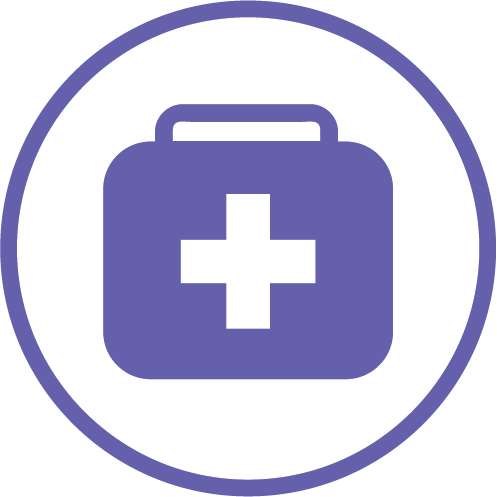
Child Health in Emergencies and Humanitarian Settings
The subgroup will continue to plan the webinar series on child health in humanitarian settings in the context of COVID-19 with the Every Newborn Action Plan Emergencies (ENAP-E) working group. Another priority is to explore more direct support to fragile setting countries, aligning with focus countries of the Child Survival Action Plan (under development). The co-chairs plan to update the work plan to align with the Task Force's five-year strategy and share with subgroup members at their next meeting in March (details to come).

Digital Health and Innovations
The co-chairs are surveying the members to decide which topics to focus on for 2022. Complete the survey to contribute! The subgroup also updated its terms of reference, which is posted on the website. The group plans to collaborate with the Quality of Care subgroup to identify and present digital tools for quality improvement of pediatric health services.
 Implementation Science
Implementation Science
The subgroup plans to host a series that highlights select members' research projects in child health, based on the responses from the inventory of ongoing child health research in countries. The subgroup will also explore leading a series of trainings for members, with a focus on program managers at the national and subnational level, on how to write research proposals, lead research projects, and write/publish manuscripts. If you would still like to contribute to the inventory or if you have curriculum ideas to share for the training modules, please reach out to childhealthtaskforce@jsi.com.
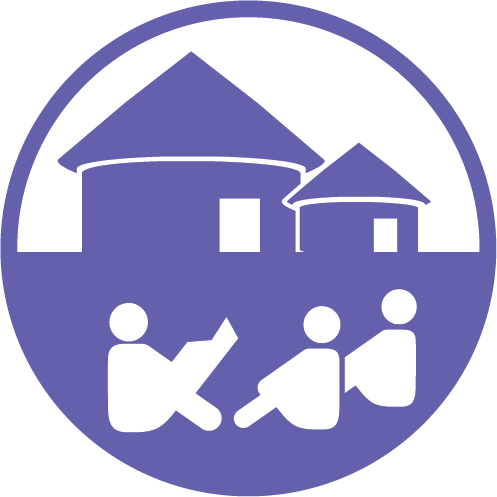
Institutionalizing iCCM
The subgroup will continue its collaboration with PMI Impact Malaria on a suite of activities for institutionalizing iCCM, including: 1. a toolkit for institutionalization, 2. a country deep dive into successful models of institutionalization, 3. an analysis of CHWs compensation schemes, and 4. knowledge management of iCCM tools on the Task Force website. The subgroup also plans to host a roundtable to share and learn across different iCCM gap analyses and investment cases in countries. Other topics that the group hopes to address next year are proactive community case management and lessons from Malawi's revival and local ownership of the cStock supply chain system for community level.

Monitoring & Evaluation
In 2022, the subgroup will take the lead on developing a results framework for the Child Survival Action Plan initiative under development. This process will include collaboration with key metrics and child health partners (including Countdown, CHAT, IGME, ENAP/EPMM) and country consultations. The subgroup also plans to contribute to the iCCM subgroup's institutionalizing iCCM activities with PMI Impact Malaria and explore opportunities with the QoC subgroup to support WHO pediatric QoC testing. In addition, they are planning a panel with the PSE subgroup on incentivizing private sector reporting into the national health information systems.
![]() Newborn and Child Health Commodities
Newborn and Child Health Commodities
Priorities for 2022 include: 1. a landscaping of NCH commodity sub-group members and their ongoing activities, 2. consultation on uptake of amoxicillin and gentamicin, 3. collaborating with the ORS/Zinc Co-pack Alliance, and 4. strengthening collaboration with other sub-groups, such as Quality of Care, Private Sector Engagement, etc.
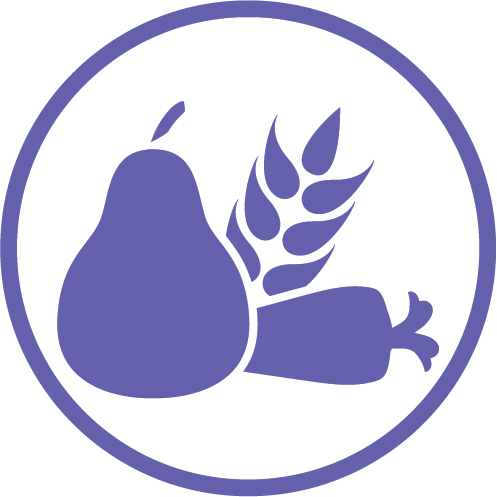
Nutrition and Child Health
This year the subgroup is eager to engage members to create tangible products that can be used beyond webinars and discussions. One idea is to collect case studies from members on implementation experiences of nutrition & child health integration into the health system. The co-chairs plan to survey members to identify the key agenda for child health and nutrition to focus on. Topics to choose from include sick child care, integration of wasting treatment into iCCM, and inequities in access to nutrition services for children.
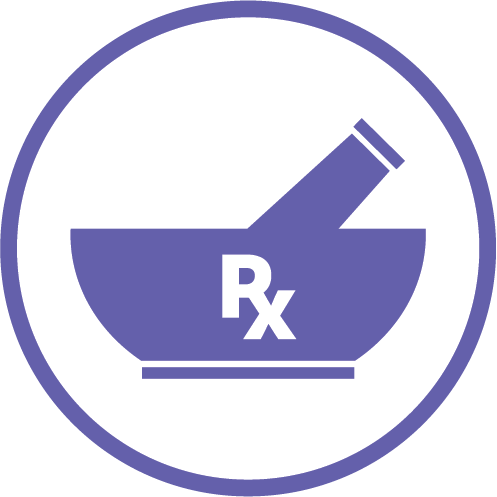
Private Sector Engagement
The subgroup plans to turn its attention to how best to support countries in 2022. One opportunity is to advocate for inclusion of the private sector in the WHO Pediatric Quality of Care standards and indicators. The subgroup is collaborating with the M&E subgroup on a panel discussion with 2-3 countries on incentivizing private sector reporting into the national health information systems. In addition, the group plans to host longer discussions with focus countries that are represented in the membership about the gaps and challenges with policies, tools, and implementation of private sector engagement for child health in each country.
![]()
Quality of Care
Building on previous workstreams, the subgroup will focus this year on supporting countries with uptake of the WHO Pediatric Quality of Care standards and indicators. The subgroup will explore opportunities to host small discussions with Quality of Care Network countries with a focus on the countries prioritized for the Child Survival Action Plan (under development). In collaboration with the PSE subgroup, the group will work on promoting quality improvement in child health services in the private sector.
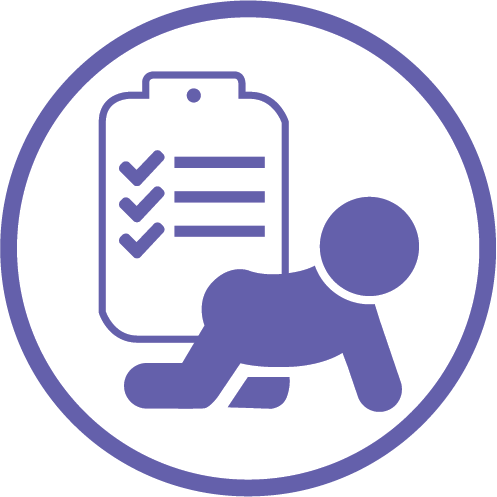
Re-imagining the Package of Care for Children
The co-chairs have sent a survey to members to identify the key work streams for the year, based on member interest and ability to contribute. Complete the survey here to have your voice heard before the next subgroup meeting. The subgroup will continue its work streams on multi-sectoral approaches to child health, including school health and nutrition, and non-communicable diseases in children.
Join individual subgroup mailing lists by completing this brief online form.

UPCOMING EVENTS
- February 24-25, 2022 | Global Public Health Conference 2022 | The fifth annual conference will be held virtually and aims to unite diverse research and case studies from all over the world while providing ample networking and publishing opportunities.
- March 28-April 1, 2022 | CUGH 2022 | The Consortium of Universities for Global Health's annual conference will bring over 2,000 scientists, students, and implementers from academia, NGOs, government, and the private sector will present, learn, and collaborate to address some of the pressing challenges our world faces.
- April 4-6, 2022 | AlignMNH | The virtual convening will bring together stakeholders to learn more about the goals, objectives, and theme of the International Maternal Newborn Health Conference (IMNHC), as well as have the opportunity to share, review, and discuss some of the focus content areas, including tracking progress, respectful care and experience of care, and quality of care.
- March 8, 2022, 1:00pm EST [18:00 GMT] | Overcoming Gender-Related Barriers to Immunization Services | As health care providers worldwide intensify efforts to reach zero-dose children with routine immunizations and, at the same time, scale up adult access to new Covid-19 vaccines, it has become clear that addressing gender-related barriers to immunization services must be part of any outreach.

NEWS FROM THE NETWORK
- Brief: Putting Equity at the Center of Child Health Programs | The fourth installment of JSI's series on child health, Beyond Survival, this brief examines the main drivers of inequity in child health and emphasizes the paramount need for a multi-sectoral approach to health to promote equity.
- Webinar: Reaching Children with Life Saving Diarrhea Treatment: Launch of the ORS/Zinc Co-pack Alliance | ORSZCA brings together organizations and individuals to identify and remove barriers to co-packaging to accelerate uptake and save lives. The Task Force will collaborate closely with ORSZCA towards the common goal of strengthened equitable and comprehensive child health programs.
- Report: USAID Advancing Nutrition Country Profiles to Improve Early Childhood Development | USAID Advancing Nutrition developed country profiles for Bangladesh, Cambodia, Ethiopia, Kenya, Kyrgyz Republic, Rwanda, and Uganda that gather and present country-level data, policies, and programs focused on improving nutrition and early childhood development outcomes through the provision of nurturing care.
- Report: Introducing PCV in Somalia, Guinea, South Sudan and Chad | Every Breath Counts Coalition's report offers ten actions to accelerate introduction of the PCV in Somalia, Guinea, South Sudan, and Chad in 2022 and achieve 90% coverage by 2025, as required by the Global Action Plan for Pneumonia and Diarrhea (GAPPD) and Immunisation Agenda 2030.
- Network: Linked Immunisation Action Network | Formerly the Learning Network for Countries in Transition, the Linked Immunisation Action Network will support middle-income countries to identify practical solutions and best practices to mitigate and prevent decreases in immunization coverage and drive sustainable introduction of key missing vaccines. The Network will use innovative learning approaches including in-person and virtual learning exchanges, learning circles, in-person and virtual study tours, country twinning and pairings, and collaborative problem-solving sessions.
- Scorecard: Every Breath Counts Wasting and Pneumonia Scorecard 2021 | Launched at the Tokyo Nutrition for Growth Summit, EBC's scorecard also provides specific call to actions for governments to implement during these critical times, as the pandemic contributes to food shortages that will increase the number of wasted children in the world.
- Article: Manifestations, responses, and consequences of mistreatment of sick newborns and young infants and their parents in health facilities in Kenya | An important work that sheds light on the mistreatment of newborns, infants, and their parents when seeking care in health facilities, the article reinforces why empathetic and nurturing behaviors for parents and children and support for health workers who suffer stress and overwork are critical.
